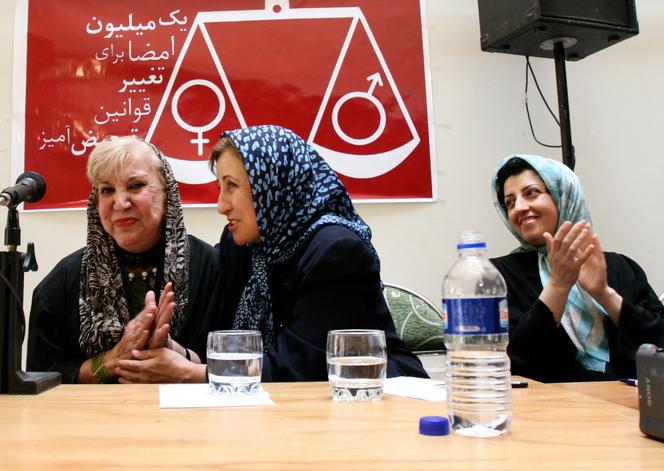

2023 Nobel Peace Prize winner Narges Mohammadi honored for fight against oppression of Iranian women

Just over a year after the death in police custody of young Mahsa Amini, which precipitated a violently repressed popular uprising in Iran, on Friday, October 6, the Nobel Peace Prize was awarded to Iranian activist Narges Mohammadi, currently imprisoned in the Islamic Republic.
The 51-year-old activist and journalist is being honored "for her fight against the oppression of women in Iran and her struggle to promote human rights and freedom for all," said the president of the Norwegian Nobel Committee, Berit Reiss-Andersen, in Oslo, as she called on Tehran to secure her release.
Despite repression and multiple prison stays, Mohammadi, Iran's most famous human rights campaigner, has chosen to continue her fight in Iran, sacrificing even her family life. When her husband, Taghi Rahmani, an activist like herself, decided to leave Iran in 2012 after years of imprisonment, the Iranian woman didn't want to follow in his footsteps. Their twin children, Ali and Kiana, remained in Iran until 2015, before joining their father in Paris. "Like the mother of Moses, I entrusted my two children to the River Nile," she described her heartbreak at the time, in a letter, written from the infamous Evin prison north of Tehran where she was serving a six-year sentence.
At the time, her twins were just 8 years old. Since then, Mohammadi has seen neither her children nor her husband. Her life has been punctuated by arrests, threats and constant pressure from the Iranian secret services.
The news of her Nobel Peace Prize sparked a wave of joy in Iran. "I'm happy that Narges, as an Iranian woman and human rights activist, has won this award," said a political activist from Tehran, who has known the laureate for over two decades and prefers to remain anonymous for fear of reprisals. "She focused on human rights and hardly hesitated to pay the heaviest price, i.e. being away from her husband and children. For this, she received a lot of criticism, but she felt that her duty to Iranian society was more important."
Another political activist living in Tehran, who has known Mohammadi for 23 years, said, "The most visible trait of her character is her audacity. If she considers a cause just, she fights for it to the end."
Mohammadi, now 52, was for years the spokesperson for the Iranian Human Rights Association, founded by the other 2003 Nobel Peace Prize winner, lawyer Shirin Ebadi. She was also a signatory of the "Campaign for the Gradual Abolition of the Death Penalty" petition, for which she was sentenced to 10 years in prison in 2015. Her multiple and prolonged stays in detention caused her neurological disorders resulting in muscular paralysis. In 2020, she was released after more than five years in prison.
You have 24.97% of this article left to read. The rest is for subscribers only.
